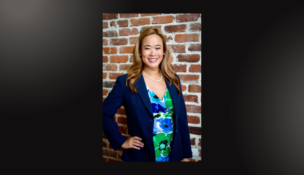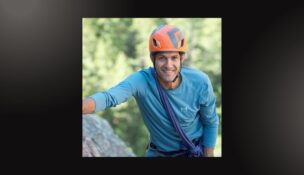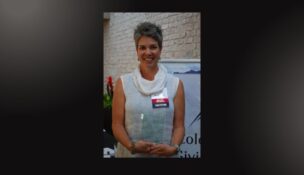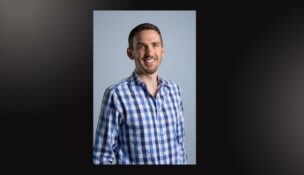Strong leadership connecting the global village
For Liberty Global's perpetually on-the-move CEO Mike Fries, all the world's a stage
Stewart Schley //August 14, 2017//
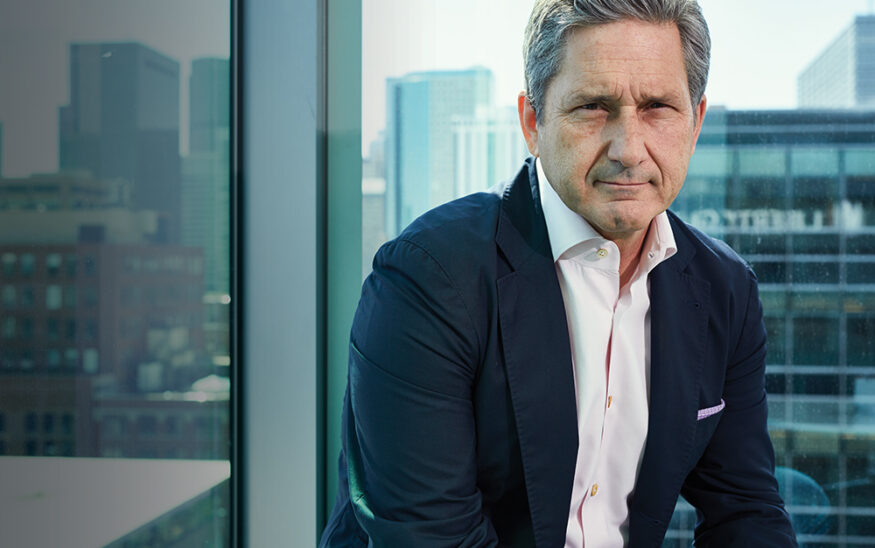

Strong leadership connecting the global village
For Liberty Global's perpetually on-the-move CEO Mike Fries, all the world's a stage
Stewart Schley //August 14, 2017//

As a kid growing up in Southern California, Mike Fries had a job flinging newspapers onto sunlit porches from his bicycle. Nearly 50 years later, the CEO of Denver-based cable company Liberty Global is still delivering media content to subscribers.
The essential job description is the same. It’s the scale that has changed. Fries is now a master strategist on a global stage, responsible for running a cable/broadband company that serves nearly 30 million subscribers in 30 countries and generates roughly $20 billion in annual revenue. Liberty Global gets less attention than the domestic industry kingpin Comcast, but it’s in the same stratosphere as largest U.S. cable company on all the key metrics: customer reach, revenue, capital expenditures and content investments.
Fries, a 54-year-old skateboarding, bike-racing, adventure-skiing enthusiast who fronts a local rock band in his spare time, retains a sort of youthful joie de vivre in his grown-up gig, despite maintaining an exhausting schedule of travel, meetings and event appearances, coupled with long-term strategic planning sessions and the occasional interview on CNBC. When we spoke in February at his office in LoDo, he had just returned from a town-hall appearance in Davos, Switzerland, where he addressed employees about subjects ranging from potential acquisitions to the impact of European politics on Liberty Global’s business. Shortly after that, Fries was bombing down a snow-blanketed mountain during a heli-skiing trip with his top management team in British Columbia. A few weeks later, he was scheduled to host Netflix co-founder Reed Hastings at a company meeting in Aspen devoted to understanding disruptive technologies. After that, there was a gathering in Washington, D.C. presented by the Denver-based Cable Center, where Fries, along with “Sopranos” creator David Chase and four other industry figures, was recognized as one of the organization’s Hall of Fame honorees.
Colleagues say Fries has been maintaining a breakneck pace as long as they can remember. “Mike is a bit of a maniac,” says Nimrod Kovacs, a longtime business associate who helped Fries develop Liberty Global’s central European cable operations in the 1990s. “But that’s one of his advantages.”
Under Fries’ guidance, Liberty Global has turned in 46 consecutive quarters of revenue growth. Fries expects the pattern to continue, thanks in part to an aggressive initiative to extend cable systems in the U.K. to neighborhoods that have never before been activated for service. It’s this sort of opportunity that distinguishes Liberty Global from its domestic peers, which operate in nearly saturated markets where cable has been available for decades.
From an innovation standpoint, Fries (it’s pronounced “freeze”) and his company are also ahead of the game. Liberty Global was the first large cable company to introduce the Netflix internet video service – regarded by some as a threat to the industry – on its cable systems. And it’s way ahead of the U.S. industry in deploying wireless phone service to create a “quadruple play” offering that blends fixed-line Internet, video and voice services with an untethered wireless component.
Even so, there are bumps in the road. In early May Liberty Global reported lukewarm first quarter results, with operating income from its cornerstone European operations down 18 percent from a year earlier, even though overall revenue rose. During Liberty Global’s earnings conference call, Fries told analysts the benefits of fixed and wireless convergence aren’t yet showing up in financial results.
He’s confident they will over time, however. Fries has faith that the essential conceit of the cable business – the ability to deliver vast amounts of content over a high-capacity network – is well-suited to flourish as demand for digital information over multiple devices grows. “It’s the gift that keeps on giving,” Fries says about cable. “And it has reinvented itself many times over the last 50 years. We’ve always bumped up against technology, disruption, regulatory constraints, and we’ve pivoted.”
HOLLYWOOD KID

Fries, one of eight kids, was born into a showbiz family. His father, Charles Fries, was a prolific Hollywood producer known colloquially as the “Godfather of the television movie.” His credits include dozens of TV shows and movies, some memorable (like the enduringly popular Shelley Long vehicle “Troop Beverly Hills”), and some forgettable (like the CBS movie “Leona Helmsley: The Queen of Mean”). Fries’ first “real job” was working in his father’s office, where screenplays and deals were the currencies of the day.
Fries’ siblings mostly stayed close to home, collecting degrees and working in Hollywood. He traveled east, studying at Wesleyan University and then earning an MBA degree from Columbia University. A job with PaineWebber (now UBS) followed, immersing Fries into an investment banking world where he helped to arrange financing for a Denver-based company, United International Holdings, which was attempting to export the U.S. cable model overseas. Intrigued by the notion, Fries joined the UIH executive team in 1990. His first workspace at the company’s Tech Center office was a makeshift desktop fashioned from a cardboard box. The early going was rough: UIH was a collective of disparate cable assets that soaked up capital and nearly collapsed under the weight of its own debt.
A series of restructurings led by Fries, who was named president of the renamed United Globalcom in 1999, took pressure off the corporate parent and culminated in the acquisition of a majority interest by the Colorado-based cable industry mogul John Malone, a mentor and friend who remains Liberty Global’s largest shareholder today.
Liberty Global’s current operating footprint mixes the exotic with the established. It’s huge in England, prominent in Central and Eastern Europe and expanding in Latin America and the Caribbean. With a major presence in London, where the Liberty Global-owned cable company Virgin Media operates, Liberty Global could easily justify making its headquarters across the Atlantic. But Fries is dead-set on staying in Denver, where Liberty Global employs about 130 people at its corporate headquarters on Wewatta Street. Part of it is familiarity: Fries has lived in Denver since the early 1990s. Part of it is convenience. With operations spanning multiple time zones, Fries likes Denver for its window-on-the-world centricity. Fries routinely meets with his executive team during daylight hours using a high-definition tele-presence system from his office.
But a third consideration is heritage. Fries has a soft spot for what Denver means to a cable industry that has its roots in the Mile High City. For a long time, Denver was widely considered to be the U.S. “cable capital,” home to influential companies like Tele-Communications Inc. and United Cable, and to larger-than-life figures like the late industry patriarch Bill Daniels. Denver still maintains some standing as an industry power center thanks to the presence of Malone and his Centennial-based Liberty Media Corp. (a separate company from Liberty Global) along with the Cable Center, an industry heritage and education facility. “This is in many ways the heartbeat of the broadband business,” Fries says. “When I bring my people back to Denver, they kind of feel this is special.”
Fries, a father of two daughters, also retains lots of civic ties in Denver, where he serves as a board member, adviser or financial supporter for a succession of nonprofits. Among them is DSST Public Schools, whose 12 schools focus on STEM (science, technology, engineering and math) subjects. DSST CEO Bill Kurtz recalls meeting Fries for the first time over breakfast in Denver’s Lowry neighborhood several years ago. Kurtz said he was struck by Fries’ ability to grasp the intricacies of the DSST concept almost immediately. “He can identify a great idea and pounce on it,” Kurtz says. DSST named Fries its “Slice of Pi” honoree in 2016, recognizing his contributions.
Then there’s the band thing. Fries is the lead singer for The Moderators, an occasionally performing classic rock cover band (think “Born to Be Wild” by Steppenwolf) formed in 2008 by a band of Colorado business executives. The group’s performances have raised several million dollars for Colorado charities. Fries is a capable and energetic front man who’s quick to acknowledge the gig is more about rousing the crowd than attaining perfect pitch. “It’s like a frat party,” he says, “Everybody knows the words to every song.”
Still, there’s something telling about watching Fries fist-pump his way through “Livin’ on a Prayer” in a video on the band’s website. People who know Fries say he’s a gifted leader with a facility for motivating. “I’ve seen him in action, and I’ll tell you: he’s very good at rallying the troops,” says Warren Packard, the CEO of Palo Alto, Calif.-based Thuuz Sports, a video application developer that has attracted a financial investment from Liberty Global’s venture arm. “Mike is just a natural leader.”
Fries says his approach to leadership revolves around a sense of shared mission. The company is slightly more than one year into a strategic transformation program designed to position it for a new era of technological and service advancement. The initiative touches nearly every aspect of Liberty Global’s operations, from the way it procures equipment to the services it offers to its approach for upgrading network performance.
But Fries says its success actually hinges mainly on the human factor. “The most important thing I did in establishing that program was to go around the table and get everyone to tell me what’s important to them – in their personal life, in their professional life, and in this company,” he says. The idea is to create a sense of personal attachment and shared commitment to a common objective. Fries says his top manager in the Netherlands, for instance, understands in detail the contributions being made by peers in Chile or London. “Investing the time to get every person on the same page; incenting people in a common way, that’s where the magic happens,” Fries says. “If everybody’s doing their own thing, building their own business, not worried about the rest of the group, it doesn’t work.”
There’s an irresistible analogy to a rock band somewhere in that expression. The drummer keeps a beat that guides the bassist, whose steady notes support the guitarist, who provides the tonal foundation for the vocalist. Fries is the lead man on a big stage where Liberty Global performs, but he’s keenly aware that it’s a group thing.
He’s a well-paid CEO – Fries earned a salary of $5.5 million last year – who’s willing to share the bounty. Fries has hosted numerous parties and get-togethers for his staff, footing the bill for performers like Bon Jovi and OneRepublic’s Ryan Tedder to ensure a good time is had.
“Mike grew up in Beverly Hills, but you’d never know it,” says his former colleague Kovacs. “He was always a very humble, very decent guy with a strong moral compass. He likes to work hard, and he likes to play hard.”







